Being a parent to a cat you must have an idea about hairball or their poop also contains a bunch of hair in a ball shape. All this happens because felines like to groom themselves, and they ingest hair in large amounts, which results in hairball issues.
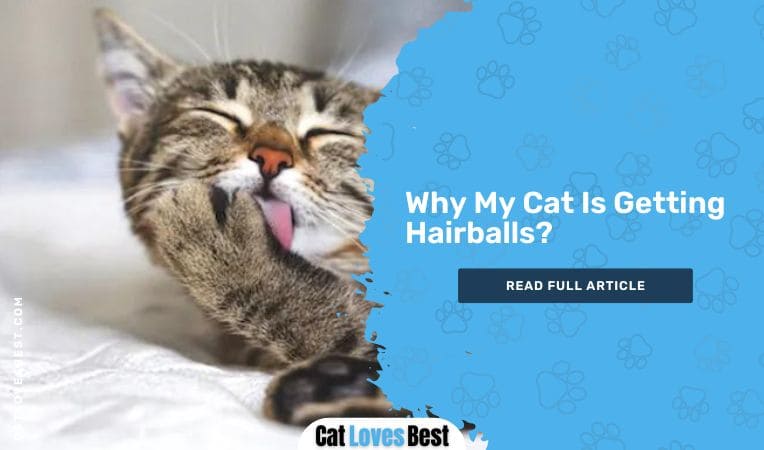
Still, many pet parents get confused, when their kitty’s health is been affected due to hairball. They often get confused when she starts retching here and there or vomiting sensation with no hairball, etc.
No worry, we are here to explain to you in a better way with causes, symptoms, and treatment tips to overcome this hairball issue in your cats.
Keep reading to get all your answers in the following paragraphs, which will explain to you in-depth, like, why your cat is getting hairballs so often, and basic tips as well as home remedies to overcome this issue.
What Is a Cat Hairball?
Catherine Barnette from VCA states, “Trichobezoar is the medical or scientific term that is used to describe a hairball.” They further explain that “Cats are constantly ingesting small amounts of hair as they groom themselves.”
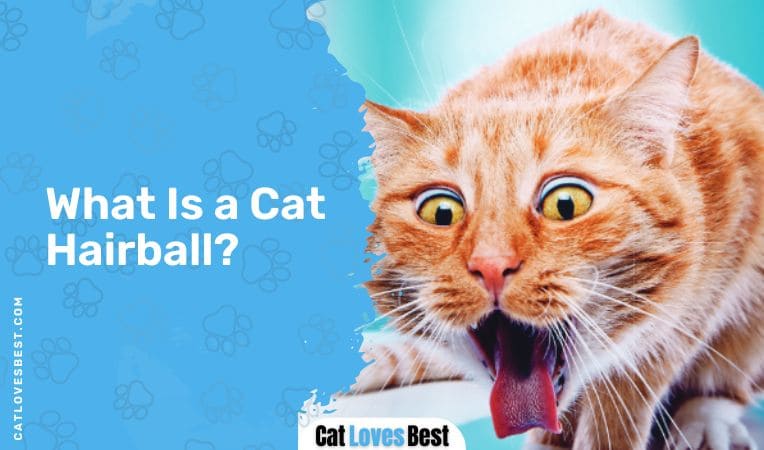
Basically, it is a collection of dead and lose hair on your kitty’s body, which they lick to clean themselves and it remains in their stomach and form a ball-type shape.
It has been observed that felines with long hair have more hairball issues because that long hair is not able to come out via poop, which results in massive hairball issues in them.
Are Hairballs Normal in Cats?
Well, yes, hairball issue is common in cats because they have a habit of grooming, or licking themselves, which leads to ingestion of hair.[1]
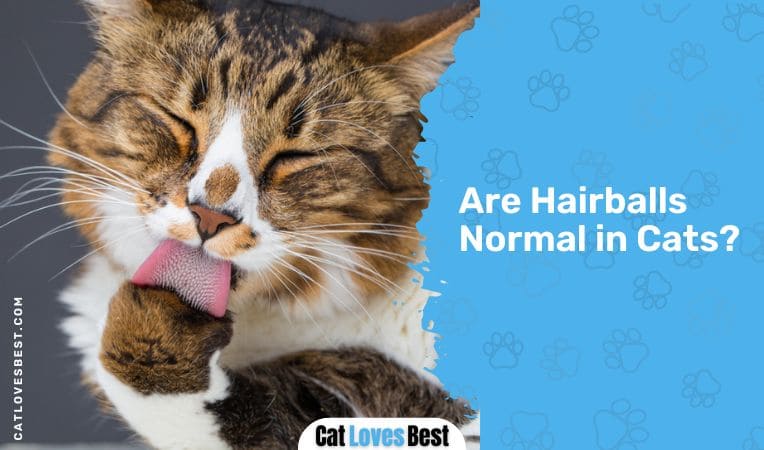
Ingestion of hair is not a problem, but when the hair is not passed out from her body because of the irregular digestion system or blockage in the intestine. All of these lead to severe other underlying health issues and make it difficult for the feline to digest her food.
During such a period, the vet will guide you in a better way with proper medication.
What Are the Symptoms of Hairballs in Cats?
Catherine Barnette from VCA also explains, “In many cases, the only sign that your pet has a trichobezoar is a vomited hairball.“
Well, if your feline suffering from a hairball issue, vomiting is the foremost symptom you will encounter. There are other symptoms also which can give you a hint that she is suffering from hairball issues.
- Vomiting with hairballs
- Severe pain in the abdomen
- Skipping meal
- Retching
- Constipation
All these symptoms are indicators that she needs immediate treatment, and before waiting for any further severe health issues it’s better to cure it on time or take control of it.
Causes
Cats get hairball issues because they ingest hair, it generally happens, when they groom themselves on a regular basis. If your kitty has long hair then she will face more problems as compared to felines with short fur.
Apart from grooming themselves, there are other reasons also which lead to hairball issues in cats. Keep reading to explore it in a better way.
Allergies

If your feline has ingested something which can cause her skin allergic reaction like rashes, itchiness. In such a situation, she will lick herself more to get relief from skin reactions, with her saliva she will try to cure it. But, this leads to ingestion of hair in large amount and block their digestive tract which causes hairball issues.
Digestion Problem
One of the causes of having hairball issues is irregular digestion, this will lead to skipping meals or not eating enough meals. It mainly occurs because your kitty has a reduced consumption ratio of water, and its digestive system has slowed down and become hard to function well.
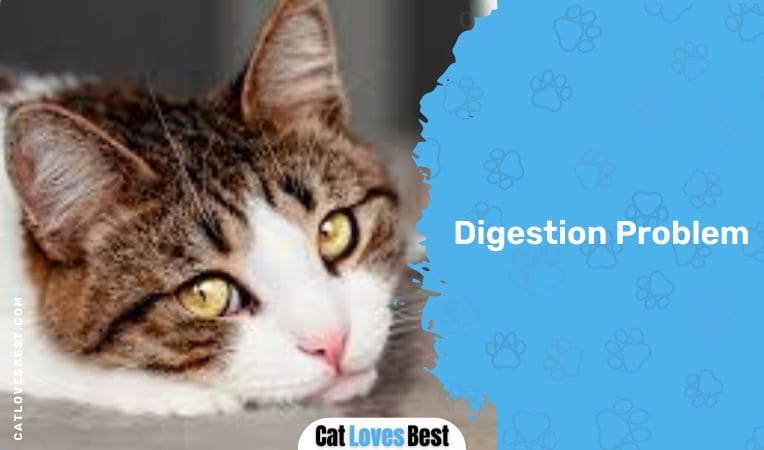
So, if the digestive system is not working properly, hair cannot passes out from the body in a natural way because due to irregular digestion she is also suffering from constipation issue.
Plus, another severe underlying health issue can also be the reason behind irregular digestion.
Excessive Grooming
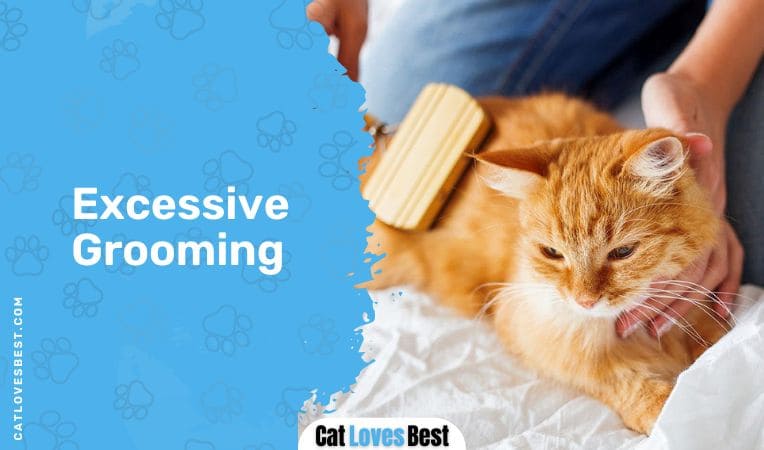
Cats like to groom but if she is feeling low or suffering any pain, then also they lick their body to give themselves comfort and relief from pain. This leads to excessive grooming habits in cats, and if she belongs to the breed category shed a lot, and have long hair. Then it becomes worse as it will definitely lead to chronic hairball issues in the future.
How to Prevent Hairballs in Cats?
There are many ways to overcome your kitty’s hairball issues. In the following paragraphs, we have covered basic treatment tips for hairballs in cats. And also penned down natural home remedies, which will help you to overcome your kitty’s hairball issue.
If your kitty has a minor hairball issue it is suggested to switch her diet plan and feed her more fiber food. Like kibbles have more fiber, so try feeding them more kibbles.
This is because fiber is good for the digestive tract and it will help in easy digestion. But make sure you are providing her wet food also because the water intake ratio is equally important as the fiber ratio.
Home Remedies
Brush your kitty’s hair
One of the common reasons for getting hairballs in your cat is grooming, they like to keep themselves clean. So prefer to lick their coat and remove loose hair, and dirt from their coat.
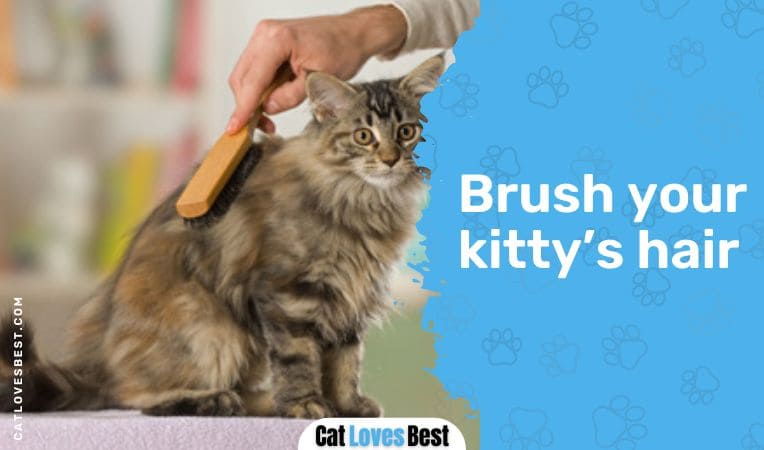
This leads to ingesting of hair in large ratios and causes hairballs. Plus, felines over-groom themselves when they are under stress, anxiety, or not well.
So it is suggested to brush your kitty’s coat on an alternative basis, and if she has long fur then take extra care. This is because they lose more hair, as compared to other short fur cats, so set a grooming routine for your feline pal and follow it.
Also, purchase high-quality grooming tools and shampoo for her, and keep her happy, when she is feeling low spend more time with her, and make her feel secure.
Increase water intake ratio
Lorie Huston from PetMD explains, “Water is one of six essential nutrients your cat needs to thrive, though it may arguably be the most important nutrient on the list.“
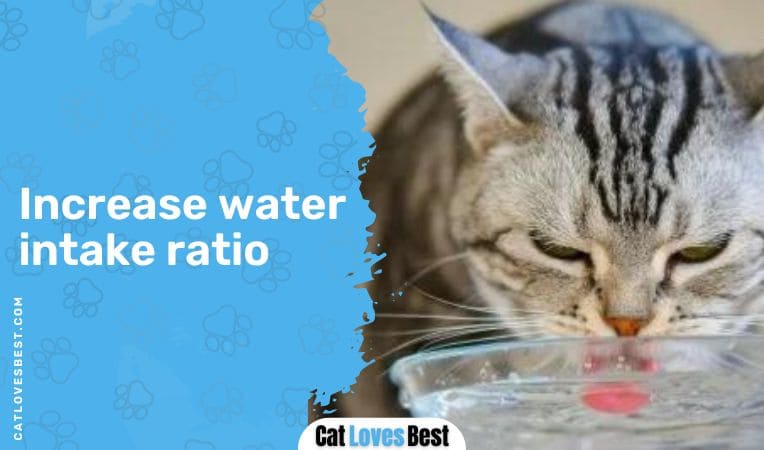
If your kitty is not consuming enough water, it will lead to digestion issues because their digestive tract will become slow and hard to digest food. Plus, water helps to flush out the ingested hair from the stomach via poop. So, the hard digestive system will only make the hairball issue worse.
Therefore, it is suggested to make your kitty a habit of consuming water on a daily basis, fill their water bowl, and trained them to finish it each day. Nowadays, water fountains are also available because cats like drinking water from a running tap, you can purchase that for your feline pal.
Apart from feeding her fiber high-quality kibbles only, feed them a combo of kibble and wet food, or only canned food twice a day. This diet switch will surely help your kitty digest food easily, she will not suffer constipation issues and it will automatically reduce the hairball problem in your cat.
Distract your kitty’s mind
Felines like to groom themselves to keep their fur clean, and shiny. It’s also true that indoor cats spend most of their time alone when their pet parents are busy with their work, so they adapt the habit of licking their coats.
So, they get higher chance of encountering hairball issues.
To overcome this licking habit it is suggested to distract their mind by offering toys to play with or taking them out for a walk. In this way, you can distract her mind and it will reduce their habit of licking themselves unnecessarily.
Add oil to your kitty’s food
Another best way is adding oil to your kitty’s food, who is suffering from a hairball issue. Oil will work as a lubricating ingredient, which will help hair to pass through the digestive system so that it comes out naturally via poop.
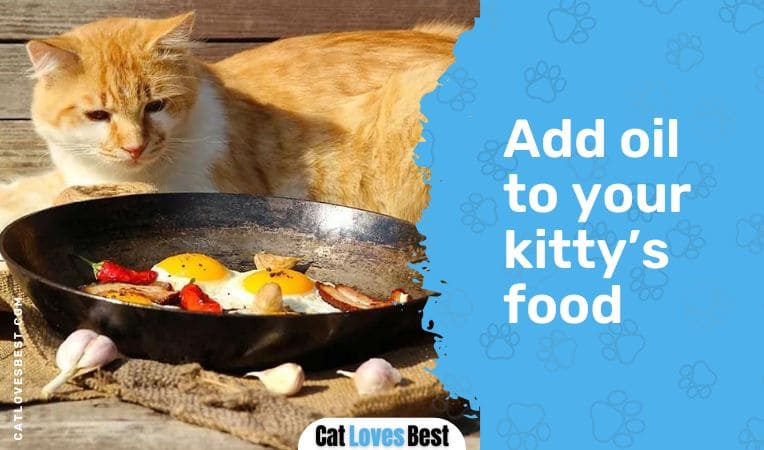
Here’s a suggestion for you to start with a few drops of oil, and observe whether it’s working or not. If it shows a positive result then add a teaspoon of high-quality oil to your kitty’s food for an easy digestive procedure.
Don’t forget to seek heal from the vet, they will suggest to you which oil will be suitable for your feline pal and how much quantity to be added to her meal.
After trying basic treatment tips, still, your kitty’s scenario is getting worse, then immediately seek a vet’s help and follow their guidelines. If your kitty has a chronic hairball issue then don’t waste time applying home remedies, start her treatment on time.
Cat Hairballs Are Dangerous?
The Cornell University of Veterinary Medicine states, “A large clump of ingested hair can block a cat’s intestinal tract and pose a deadly threat.“
Hairballs are common health issues encountered in cats. But it becomes a matter of concern when your feline pal repeatedly starts retching and moving here and there with no sign of a hairball.
This could be a sign that a hairball has passed from her stomach to the intestine, and gives her trouble like pain, vomiting sensation, etc. In other words, hairballs get stuck in their intestine and it can result in blockage issues.
In such cases, they will express their health issues via symptoms, such as:
- Vomiting sensation
- Feeling lethargic all-day
- Start skipping their meal
- Excessive nibbling on the grass
- Encountering stomach issues
- Retching with no sign of hairballs
- Excessive coughing
So, if you encountered any of these symptoms or any other related severe health consequences. It is suggested to seek a vet’s help and start her medication on time to avoid any life threatening.
FAQs
Do cats get hairballs when stressed?
Well, it’s not exactly true that cats get hairballs due to stress or anxiety. But we also cannot deny the fact that felines overgroom themselves when they are under stress. And ingesting an excessive amount of hair lead to hairball issues in cats.
Is it normal for a cat to throw up hairballs every day?
No, it is not normal for a cat to throw up hairballs every day. If your kitty is vomiting hairballs on a daily basis then immediately seek vet help because she might be suffering from severe underlying health issues. Cats with major hairball issues should be treated with a high fiber diet and prescribed medicines.
Does wet food help with hairballs?
Wet food is easily digestible as compared to dry ones, and it allows hair to easily passes through the tract. Wet food aids in preventing it from forming hairballs, and reduces the chances of facing hairballs issues. Felines who are regularly taking wet food will tend to have less hairball issues than other cats.
Well, It’s a Wrap!
Now, you have enough knowledge regarding hairball issues in cats. We have almost covered important points related to hairballs and how to overcome them with time.
Let’s quickly recall, you know very well that grooming is the prime reason your kitty faces hairball issues, and vomiting with hair is the basic symptom you will encounter that she is having hairballs in her body.
Apart from symptoms and causes information, treatment tips are also highlighted. Such as brushing them every day, taking care of their food, distracting their mind, adding oil to their food, and other related points.
Confidently, now you will be able to manage your kitty’s health and you know when it is getting serious and you have to meet the vet to overcome this hairball issue to prevent your feline pal from a severe underlying health issue.
References:
- Donadelli, R. A., & Aldrich, C. G. (2020). The effects of diets varying in fibre sources on nutrient utilization, stool quality and hairball management in cats. Journal of animal physiology and animal nutrition, 104(2), 715-724.



